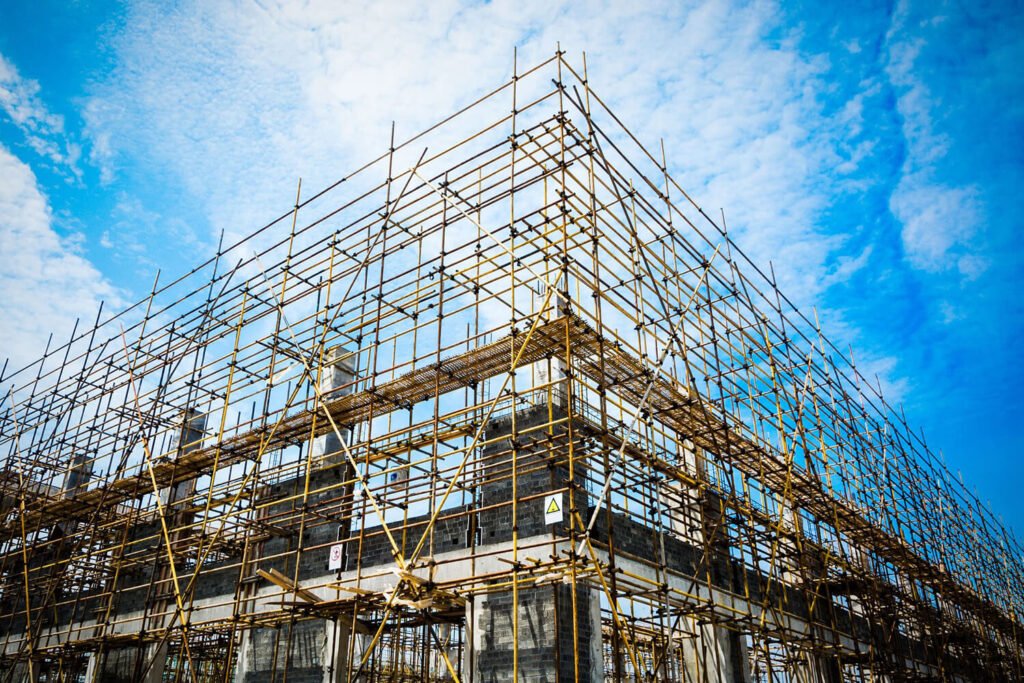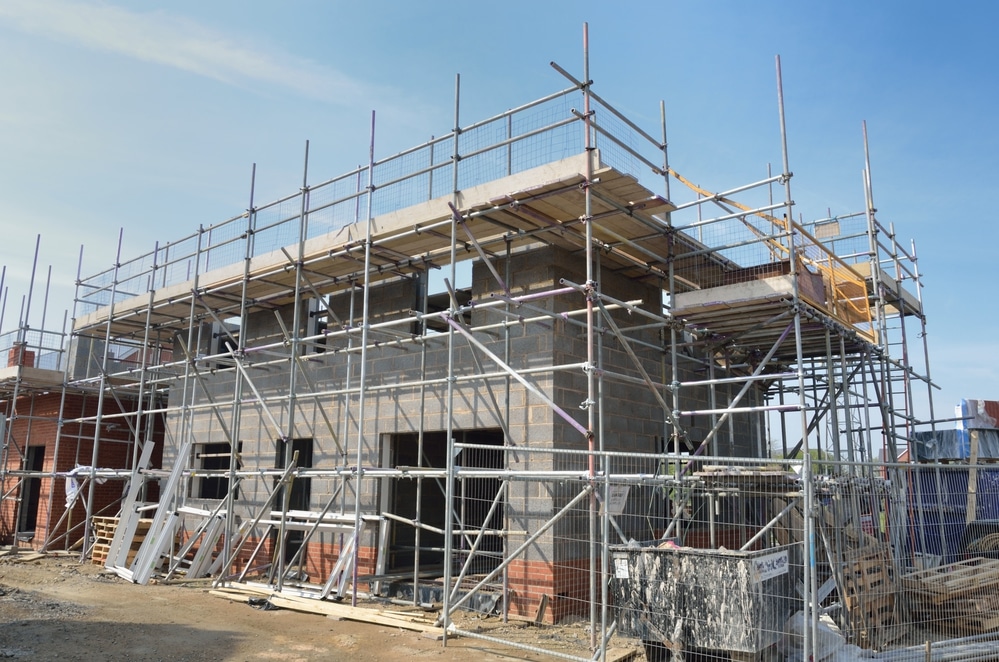Professional Scaffolder Surrey: Your Trusted Partner for Safe Installations
Exploring the Numerous Sorts Of Scaffolding Made Use Of in Building And Construction Jobs
The building and construction industry counts heavily on different kinds of scaffolding to fulfill particular job demands, each offering distinct benefits and applications. Traditional framework scaffolding supplies a tough foundation for general tasks, while suspended scaffolding is crucial for work on high-rise frameworks.

Conventional Frame Scaffolding
Typical frame scaffolding is just one of the most commonly utilized methods in the building industry as a result of its toughness and flexibility. This system consists of straight and upright frames that are constructed to produce a secure system for employees and materials. The primary parts consist of vertical blog posts, straight ledgers, and diagonal braces, which together provide a solid structure that can sustain significant lots.
Among the essential benefits of standard framework scaffolding is its adaptability to various construction tasks, ranging from domestic structures to big industrial structures. The modular layout permits easy assembly and disassembly, making it effective for both short-term and lasting jobs. Additionally, the system can be customized in elevation and size, fitting various structure styles and website conditions.
Safety and security is paramount in scaffolding applications, and traditional frame systems are outfitted with guardrails and toe boards to stop drops and make certain employee defense. Routine evaluations and adherence to security regulations are important in maintaining the integrity of the scaffold (Scaffolding). Overall, conventional framework scaffolding stays a fundamental selection in the construction sector, providing a reputable platform for labor and enhancing general job efficiency

Suspended Scaffolding
Suspended scaffolding supplies an one-of-a-kind option for building projects that need accessibility to raised surfaces, specifically in circumstances where traditional structure scaffolding may be impractical. This type of scaffolding is typically put on hold from the roof covering or upper levels of a structure, utilizing a system of systems, ropes, and pulleys to produce a functioning space that can be gotten used to numerous elevations.
One of the main advantages of put on hold scaffolding is its flexibility. It can be easily rearranged or decreased to fit changes in building requirements, making it perfect for jobs such as home window installment, façade work, and maintenance on skyscrapers. Furthermore, the marginal footprint of suspended scaffolding enables for far better use of ground space in city environments, where area is commonly limited.
Safety is a crucial consideration in the use of put on hold scaffolding. Overall, suspended scaffolding provides a reliable and reliable remedy for accessing hard-to-reach areas in different building and construction scenarios, enhancing both performance and safety and security on website.
System Scaffolding
System scaffolding, usually considered as a contemporary remedy in the scaffolding sector, includes pre-engineered parts that can be rapidly assembled and adjusted for numerous building tasks. Scaffolding. This sort of scaffolding is identified by its modular layout, which enables convenience and performance on task websites, fitting architectural needs and various elevations
Typically made from high-strength steel or light weight aluminum, system scaffolding offers improved sturdiness and stability. The elements include upright posts, horizontal ledgers, and angled dental braces, which interconnect firmly, making certain a durable structure. The layout frequently includes standardized fittings, simplifying assembly and disassembly procedures, consequently decreasing labor time and prices.

Rolling Scaffolding
Rolling scaffolding is a versatile choice to standard fixed scaffolding, created for wheelchair and simplicity of usage on construction sites. This type of scaffolding consists of a platform sustained by structures with wheels, permitting workers to conveniently move it as required. The movement attribute dramatically enhances performance, as it reduces downtime connected with setting up and dismantling repaired scaffolding.
Typically constructed from lightweight materials such as light weight aluminum additional resources or steel, rolling scaffolding supplies a tough yet portable option for projects needing regular repositioning - Scaffolding. It is specifically advantageous in tasks such as paint, drywall installment, and electrical job, where accessibility to numerous elevations and locations is necessary
Safety and security is critical in rolling scaffolding layout, with attributes such as locking wheels to protect against unexpected motion when in usage, and guardrails to shield workers from drops. In addition, lots of models are adjustable in elevation, accommodating various task needs.
Cantilever Scaffolding

The layout of cantilever scaffolding commonly involves using arms or braces anchored to a building or structure, making it possible for the platform to extend exterior safely. Safety and security is extremely important; hence, these scaffolds need to be engineered to withstand environmental conditions and numerous lots. Normal assessment and upkeep are vital to make sure structural integrity and worker safety and security.
Cantilever scaffolding is favored for its versatility and effective use of space, making it a preferred choice in urban atmospheres where area restrictions are typical. Additionally, it helps with much easier accessibility to high elevations, ultimately adding to the general effectiveness of building and construction jobs. Similar to all scaffolding kinds, appropriate training and adherence to safety and security requirements are essential for workers utilizing cantilever scaffolding.
Final Thought
Typical frame scaffolding offers scaffolding questions stability, while put on hold scaffolding uses convenience for raised jobs. System scaffolding assists in fast setting up, and rolling scaffolding improves mobility for varying job settings.
Traditional structure scaffolding offers a tough structure for basic tasks, while suspended scaffolding is essential for job on high-rise frameworks.Moving scaffolding is a flexible choice to traditional fixed scaffolding, designed for wheelchair and ease of use on construction sites. As with all scaffolding types, proper training and adherence to security standards are vital for workers making use of cantilever scaffolding.
Standard frame scaffolding offers stability, while suspended scaffolding provides convenience for raised tasks. System scaffolding assists in quick setting up, and rolling scaffolding improves wheelchair for differing job settings.